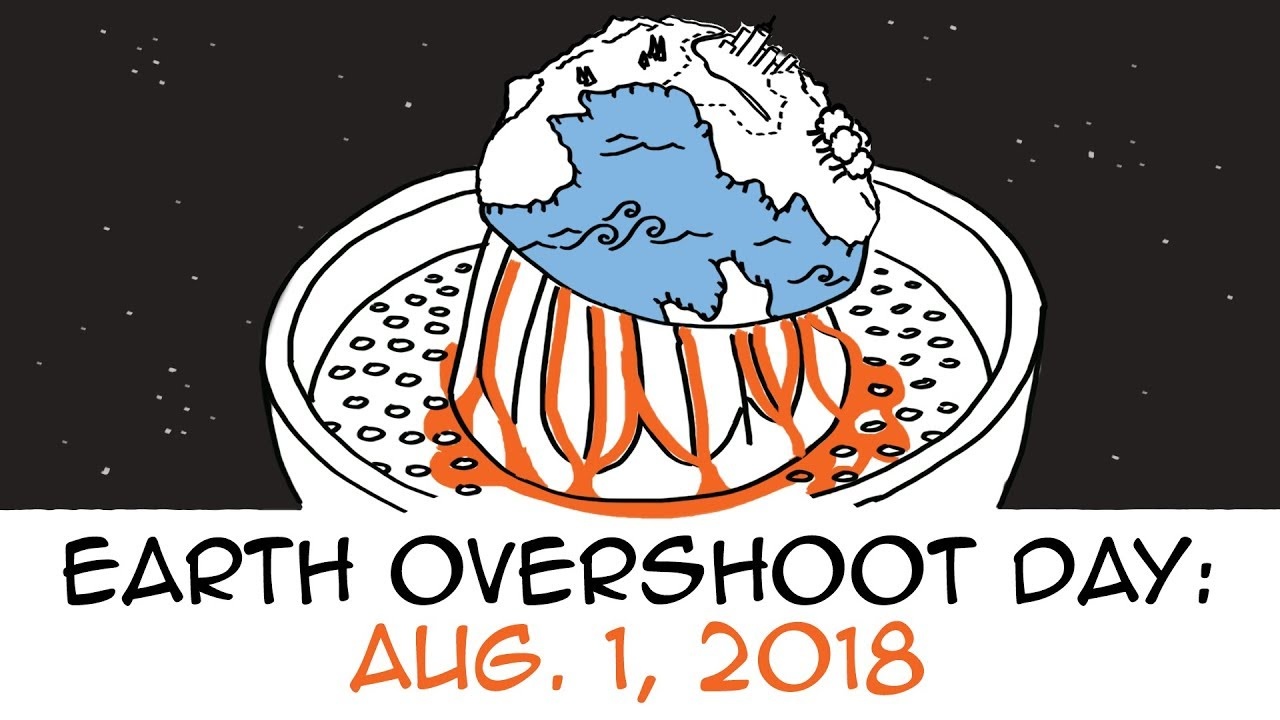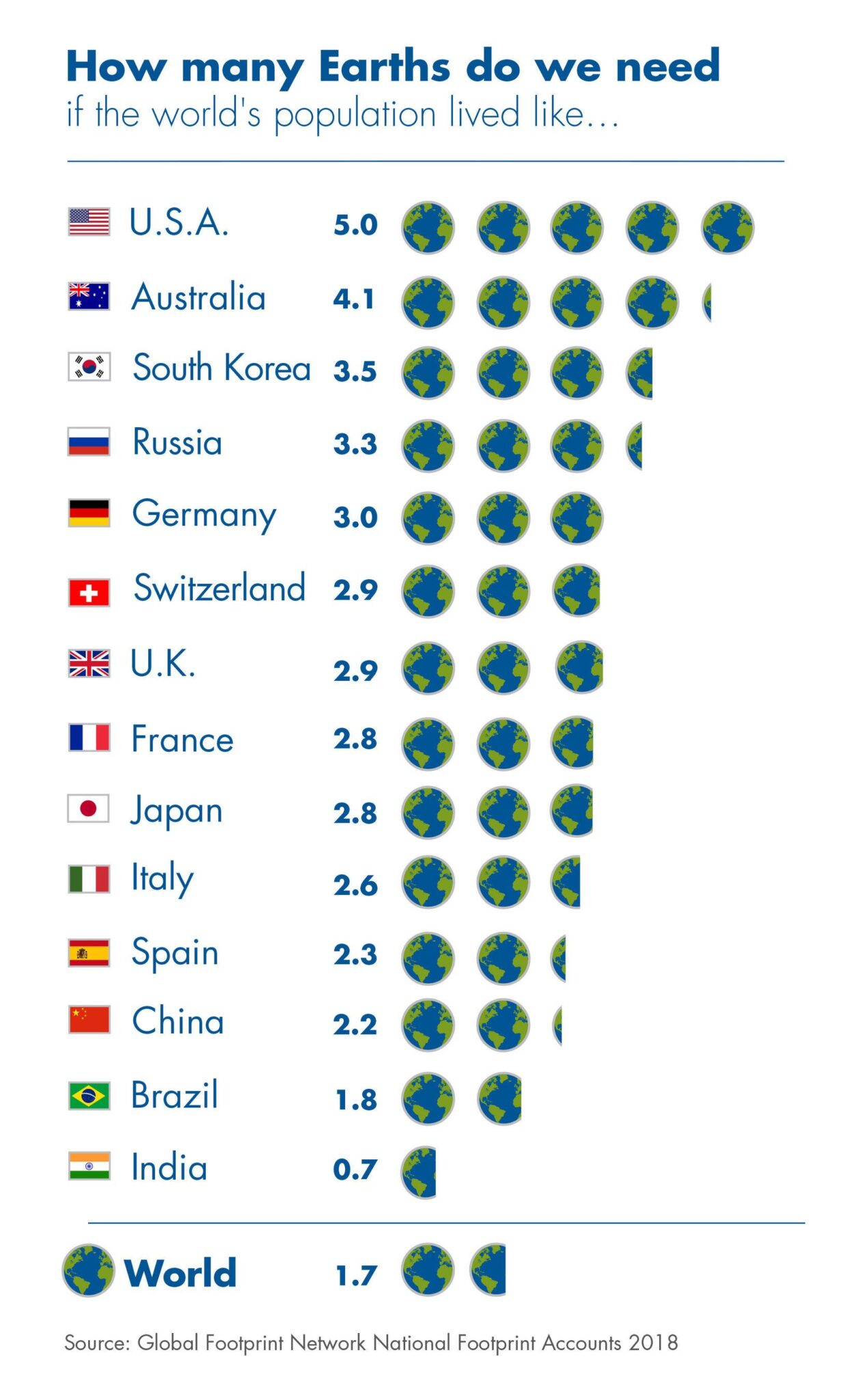

Earth Overshoot Day—a marker of when the world’s 7.6 billion people will “use more from nature than our planet can renew in the entire year”—will fall on Aug. 1, the earliest date yet since we first went into ecological debt in the 1970s.
“In other words, humanity is currently using nature 1.7 times faster than our planet’s ecosystems can regenerate—or ‘using 1.7 Earths,'” said the Global Footprint Network in a press release.
The international research organization uses Ecological Footprint accounting to calculate the date each year. Last year’s Earth Overshoot Day fell a day later on Aug. 2.
Global Footprint Network
“As we mark Earth Overshoot Day, today may seem no different from yesterday—you still have the same food in your refrigerator,” Global Footprint Network CEO Mathis Wackernagel said in the press release. “But fires are raging in the Western United States and in Cape Town, South Africa, residents have had to slash water consumption in half since 2015. These are consequences of busting the ecological budget of our one and only planet.”
So what will happen after Aug. 1? In the remaining five months of 2018, human beings will draw on Earth’s precious and limited reserves of fresh water, land, fisheries and forests, making it harder for these ecosystems to regenerate their resources.
“Our economies are running a Ponzi scheme with our planet. We are using the Earth’s future resources to operate in the present and digging ourselves deeper into ecological debt,” Wackernagel said.
Compared to the 1960s, humankind only spent three-quarters of Earth’s annual resource allotment. However, by the 1970s, economic and population growth has driven Earth into this annual downward trend.
Global Footprint Network
Carbon emissions from the burning of fossil fuels has become the fastest-growing part of the Ecological Footprint, the Global Footprint Network warned. CO2 is also being released at a rate much faster than it can be absorbed.
Thus, a significant reduction of carbon emissions is “an essential step” to avoid ecological overshoot and to also mitigate the harmful impacts of climate change, the research organization stated.
“It’s time to leverage our creativity and ingenuity to create a prosperous future free of fossil fuels and planetary destruction,” Wackernagel said.
The Global Footprint Network has listed the four following solution areas to address ecological overshoot:
- Cities: If we reduce driving by 50 percent around the world and replace one-third of car miles with public transportation and the rest by walking and biking, we can #MoveTheDate of Overshoot Day back 12 days.
- Energy: Reducing the carbon component of humanity’s Ecological Footprint by 50 percent would #MoveTheDate 93 days.
- Food: If everyone in the world cut food waste in half, reduced the Footprint intensity of their diets, and consumed world-average calories, we would #MoveTheDate 38 days.
- Population: If every other family in the world had one less child, we would move Overshoot Day 30 days by 2050.
Global Carbon Emissions on the Rise Again Due to Coal Comeback https://t.co/VvMGqjv5Ky @BeyondCoal @dirtyenergy
— EcoWatch (@EcoWatch) June 14, 2018

 233k
233k  41k
41k  Subscribe
Subscribe 

